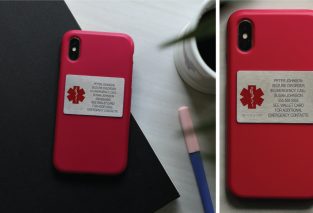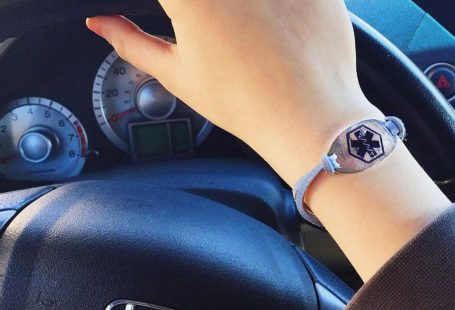A medical tag bracelet is simply another term for a medical ID bracelet, which is worn to inform first responders and bystanders about someone’s chronic medical conditions if an emergency occurs.
Wearing a medical tag/ID can save your life in such a circumstance and allow first responders to promptly identify and treat your condition.
Here’s a quick rundown about what a medical tag/ID is, who should wear one, and what information should be included on a medical tag bracelet.
What is a Medical Tag Bracelet?
A medical tag bracelet is a bracelet with an attached tag or charm that contains valuable information about someone’s medical conditions and emergency contact information. It provides valuable information to first responders and bystanders in the event of an emergency.
The bracelets are available in many different styles, colors, and materials to fit everyone’s personal taste and lifestyle.
The tag can also be supplemented with a digital health ID that provides more extensive information about their health history, medications, and emergency contact information.
Who Should Wear a Medical Tag Bracelet?
A medical tag bracelet is recommended for anyone with a chronic health condition or severe allergies, especially if their condition can cause them to lose consciousness or otherwise make it difficult for them to communicate.
If someone is unsure of whether they need a medical tag bracelet, they should consult with their healthcare provider to see if it can be of use to them.
There is no risk associated with wearing a medical tag bracelet. If you do decide to buy a medical tag bracelet, you should always wear it so that it’s with you in the event of an emergency.
What Information Should be Engraved on a Medical Tag Bracelet?
Information that can be included on a medical tag bracelet includes chronic medical conditions, medications, and allergies. Health conditions such as type 1 and type 2 diabetes, epilepsy, implantable devices such as a pacemaker, cardiac stents, chronic kidney disease, and history of a stroke should all be listed.
It is especially helpful for first responders to be aware of “invisible” health conditions that are not immediately apparent. Medications such as blood thinners, beta blockers, anti seizure medication and insulin should all be included in the ID.
Severe allergies, especially to food or medication that require the use of an EpiPen if exposed, also need to be noted so that first responders can intervene appropriately.







